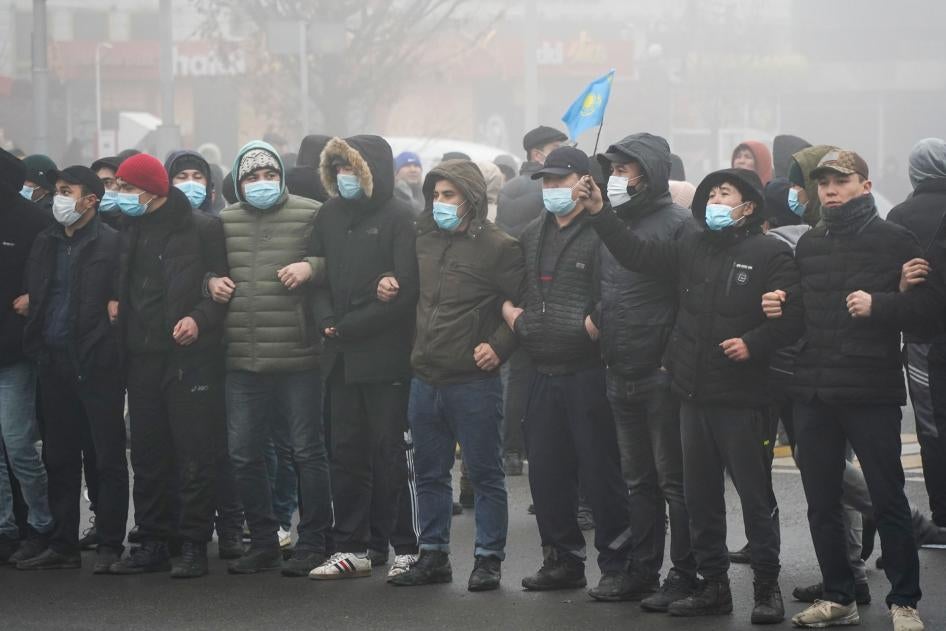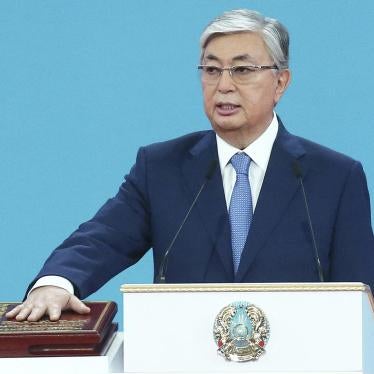Update January 6: Dozens of people were killed in a police operation in Almaty, according to an Almaty police spokesperson, a shocking loss of life in response to overnight looting and unrest in Kazakhstan’s largest city, Human Rights Watch said.
Eight police and national guard troops have been killed and another 317 law enforcement officers injured in the violence, the interior ministry said. According to media reports, since protests began, over one thousand people have been injured, 400 of whom have been hospitalized. The United Nations called for all parties to "exercise restraint, refrain from violence, and promote dialogue."
Hundreds of people have been detained and dozens injured in nationwide protests sweeping across Kazakhstan since January 2. Amid chaotic scenes today protesters in Almaty, the country’s largest city, and Aktobe, in Kazakhstan’s west, stormed city mayor’s offices, while protests escalated in other cities.
President Kasym-Jomart Tokaev has declared a two-week state of emergency in Almaty, Nur-Sultan, and the western Mangystau region, where the protests started, including a night curfew and ban on mass gatherings. Today, he replaced his government with an interim administration.
More than 200 people have been detained and many injured, including 95 police officers, according to Kazakhstan’s interior ministry. Access to the internet and messenger apps have been blocked for periods during the protests. At least two journalists from Radio Azattyk were briefly detained. Footage shows police and security forces using stun grenades, water cannon, and tear gas in response to the protests.
During this crisis, it is vital that Kazakhstan respects the right to peaceful assembly and free speech, and upholds its international human rights obligations. When policing crowds, force should be used as a last resort, and if force is justified, it must be proportionate to the threat and deployed in a way that minimizes damage, injury, and indiscriminate impact. Stun grenades should not be used in large crowds, and given winter conditions in Kazakhstan, the use of water cannon should be avoided to prevent potentially life-threatening hypothermia and frostbite. Tear gas should not be used in closed spaces.
The protests, which started in Zhanaozen, western Kazakhstan, were triggered by sharp price increases for liquid petroleum gas (LPG), widely used as fuel for cars, and in recent days focused on wider socio-economic and political issues. The authorities later said an LPG price cap would be reimposed.
Authorities in Kazakhstan have long restricted fundamental rights, including the right to peaceful protest, freedom of association, and free speech, and have rejected calls to introduce meaningful political and human rights reforms. Kazakhstan has banned opposition parties and prosecuted opposition activists.
Longstanding concerns over economic hardship and inequality in Kazakhstan have been reinforced during the Covid-19 pandemic, with people of low incomes and in the informal economy, in particular women with multiple children, being especially vulnerable.









